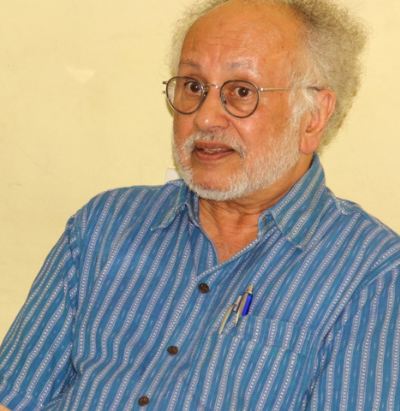Ever since its institutionalisation as a university discipline in the course of the 19th century, history — along with the vast majority of social sciences — have been entrapped in “methodological nationalism”, the assumption that nations are the natural units for study, thus equating society with the nation-state, and conflating national interests with the purposes of the social sciences. Questions thus very often get reduced to explanations limited to national parameters without taking account of broader dynamics and relations. In the context of nations that gained independence from European colonialist in the post-WW II era, Postcolonial Studies have sought to engage with this nationalist framework by attempting to situate their histories especially during the colonial period as a process of resistance to European imperial domination and imposition of the latter’s outlook and values. However, a number of questions and issues are thus blindsided in this systematically agonistic perspective, or for that matter in its opposite, a free-flowing diffusionist model based on a simple-minded Whiggish model of progress.
This course looks to go beyond this double-bind in order to examine a whole swathe of historical questions — migrations; the administration of imperial spaces; scientific, technological and cultural transfers; the formation of globalised elites; the construction of knowledge through processes of intercultural interaction … just a few examples of phenomena that traditional national historiographies are not tailored to confront. Based on case-studies from early-modern and modern history, this course will present and discuss different historiographical approaches to transnational and global processes, their fields of applicability, as well as their limitations: diffusionism, comparativism, connected, entangled, circulatory and cross-roads history, to name some of them. This course is ideally suited to students in the humanities and social sciences.
Suggested Readings
Fredrik Barth, Ethnic Groups and Boundaries: The Social Organisation of Culture Difference (London: George Allen & Unwin, 1969).
George Basalla, “The Spread of Western Science,” Science, 156, N° 3775 (May, 1967): 611-622. https://doi.org/10.1126/science.156.3775.611.
Mark Bloch, “A Contribution Towards a Comparative History of European Societies,”in Idem, Land and Work in Mediaeval Europe. Selected Papers (London: Routledge & Kegan Paul, 1967).
Nancy L. Green. “The Comparative Method and Poststructural Structuralism: New Perspectives for Migration Studies,” Journal of American Ethnic History, 13, 4 (1994): 3-22.
Nancy L. Green, The Limits of Transnationalism (Chicago: The University of Chicago Press, 2019).
* Arnaldo Momigliano, “The Rules of the Game in the Study of Ancient History,” History and Theory, 55 (2016): 39-45.
Gananath Obeyesekere, “British Cannibals: Contemplation of an Event in the Death and Resurrection of James Cook, Explorer,” Critical Inquiry, 18, 4 (1992): 630-654.
Mary Louise Pratt, “Introduction: Criticism in the Contact Zone,” in Imperial Eyes: Travel Writing and Transculturation(London: Routledge, 2017).
* Georg Simmel, “The Stranger,” (1908) in Idem, The Sociology of Georg Simmel, ed. Kurt Wolff (Glecoe, IL.: The Free Press, 1950).
Kapil Raj. “Beyond Postcolonialism … and Postpositivism: Circulation and the Global History of Science,” Isis, 104, 2 (2013): 337-47.
Kapil Raj. “Colonial Encounters and the Forging of New Knowledge and National Identities: Great Britain and India, 1760-1850,” Osiris, 15 (2000): 119-34.
Kapil Raj. “Introduction: Circulation and Locality in Early Modern Science,” The British Journal for the History of Science, 43, no. 4 (2010): 513-17.
* Alfred Schütz, “The Stranger: An Essay in Social Psychology,” American Journal of Sociology, 49 (1944): 499-507.
Sanjay Subrahmanyam. “Connected Histories: Notes towards a Reconfiguration of Early Modern Eurasia,” Modern Asian Studies, 31, 3 (1997): 735-62.
Sanjay Subrahmanyam, Three Ways to Be Alien: Travails and Encounters in the Early Modern World (Waltham, MA: Brandeis University Press, 2011).
Frederick Jackson Turner, “The Significance of the Frontier in American History,” (1893) in Ibid, The Frontier in American History (New York: Henry Holt, 1920)
Michael Werner and Benedicte Zimmermann, “Beyond Comparison: Histoire Croisée and The Challenge of Reflexivity,” History and Theory, 45, 1 (2006): 30-50, https://doi.org/10.1111/j.1468-2303.2006.00347.x.
Richard White, The Middle Ground: Indians, Empires, and Republics in the Great Lakes Region, 1650-1815 (Cambridge: Cambridge University Press, 1991).
* Required reading





